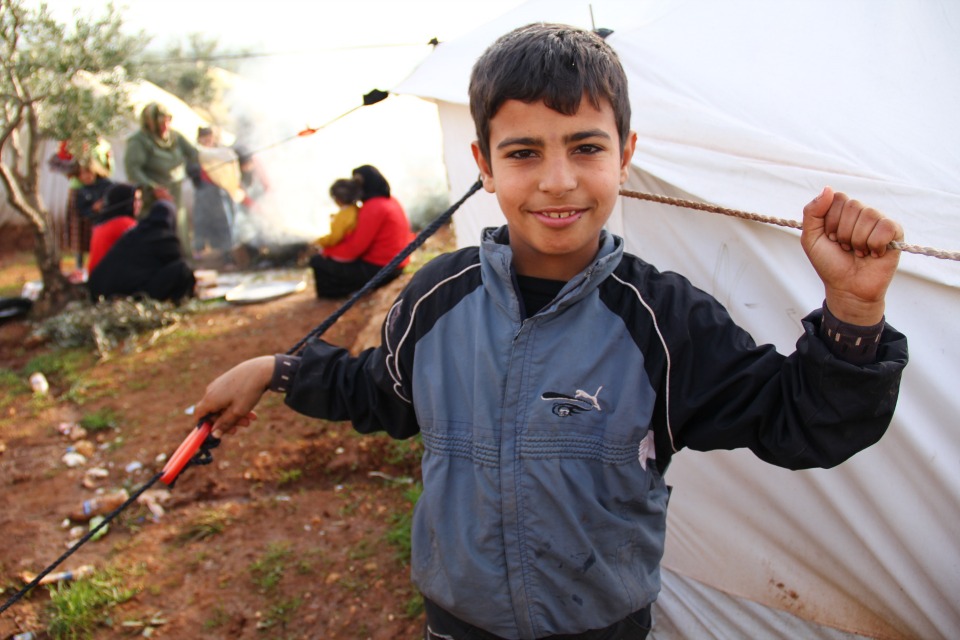"Violations of children’s rights compromise a country’s future prosperity and ability to build lasting peace"
UK Statement by Ambassador Lyall Grant of the UK Mission to the UN, to the Security Council Open Debate on Children and Armed Conflict

Thank you Madam President,
I thank you for convening today’s important debate to discuss progress towards the full implementation of the Children and Armed Conflict agenda. I also thank Foreign Minister Asselborn for his personal presence in the Council and for Luxembourg’s strong and consistent leadership on this issue, including through chairmanship of the Working Group on Children and Armed Conflict. Let me also warmly thank the Secretary-General and Special Representative Leila Zerrougui and the other briefers for their earlier statements. I was particularly struck by the testimony of Mr Sawanah, which brought to life to all of us why this issue is so important.
Fifteen years ago, the Security Council recognised children and armed conflict as an issue of international peace and security with the adoption of resolution 1261. Whilst we have since seen the release, reintegration and protection of thousands of children, nonetheless violations continue. In Syria, where well over 10,000 children have been killed, 3,000 schools damaged or destroyed, and 3 million children are in dire need of humanitarian assistance. In Africa, where the Lord’s Resistance Army has blighted the lives of thousands of children, terrorising and displacing them from their homes as well as recruiting them to torture and kill. As long as children’s lives continue to be torn apart by conflict, our work and commitment must also continue. We therefore welcome the adoption of today’s resolution, which adopts practical steps for combating violations against children. The resolution draws attention to devastating attacks on schools in armed conflict. Schools are protected civilian objects under international humanitarian law and yet this council has heard in briefings by Valerie Amos of the continued militarisation of schools in conflict, especially in Syria. Schools should be a place of safety, learning and peace, not violence and conflict.
Madam President,
It is high time that Member States upheld their responsibility to protect children. We warmly welcome the campaign, “Children, Not Soldiers” aimed at ending the recruitment and use of children by Government armed forces in conflict by 2016. The United Kingdom recognises that this is an ambitious undertaking. Special Representative Leila Zerrougui and UNICEF Executive Director, Tony Lake, have led this campaign. But that is not enough. We ask the Secretary-General to ensure that the campaign is mainstreamed throughout the United Nation’s work from peace processes to peacebuilding, including in the work of UN Country Teams. We look to Mr. Ladsous and Mr. Feltman to empower child protection advisors in UN field missions.
Madam President,
When it comes to children’s lives, no effort can be spared. It is also in our hands, as Member States, to support implementation of the UN framework on Children and Armed Conflict. The United Kingdom is doing its part. Foreign Office Minister, Mark Simmonds, has personally committed himself to work to release child soldiers in the DRC, Somalia, South Sudan, Chad and Burma. He has urged these Governments to implement their Action Plans with the United Nations to end recruitment and use of child soldiers. He has also highlighted the need to prevent and protect children from other grave violations, including sexual violence. The United Kingdom believes that regional organisations can also make important contributions, as we have just heard from my Nigerian colleague. That is why we are funding a child protection adviser in the African Union, who will help implement the AU/Special Representative joint declaration.
Madam President,
All parties to armed conflict, state and non-state alike, must abide by international law. Those who violate international law must be prosecuted. With verified information on violations against children from UN country task forces and Ms. Zerrougui’s commitment to concluding Action Plans, compliance with international law can now be measured. We call on all parties to sign action plans, and we call on those who that have already signed, to honour their commitments in full. We urge the Secretary-General to strengthen monitoring, reporting and response, and the Working Group on Children and Armed Conflict to increase pressure on persistent perpetrators.
I want to highlight today the invaluable contribution of the International Criminal Court in the fight against impunity for crimes against children. Two years ago, the ICC found Thomas Lubanga guilty of the war crime of using children to participate in hostilities.
Today the ICC found Germain Katanga guilty of war crimes. Although he was acquitted of using child soldiers, the Trial Chamber found that children were used as combatants. No matter who was responsible, this is an appalling violation of these children’s rights. The fight against impunity must continue. We also welcome the fact that Bosco Ntaganda will be held to account by the ICC for the alleged recruitment of child soldiers in Eastern DRC.
Madam President,
We have an obligation to the next generation in countries affected by conflict. It is no exaggeration to say that violations of children’s rights compromise a country’s future prosperity and ability to build lasting peace. We must commit to do everything we can to prevent abhorrent violations and rise to the challenges to protecting the world’s children.
Thank you.